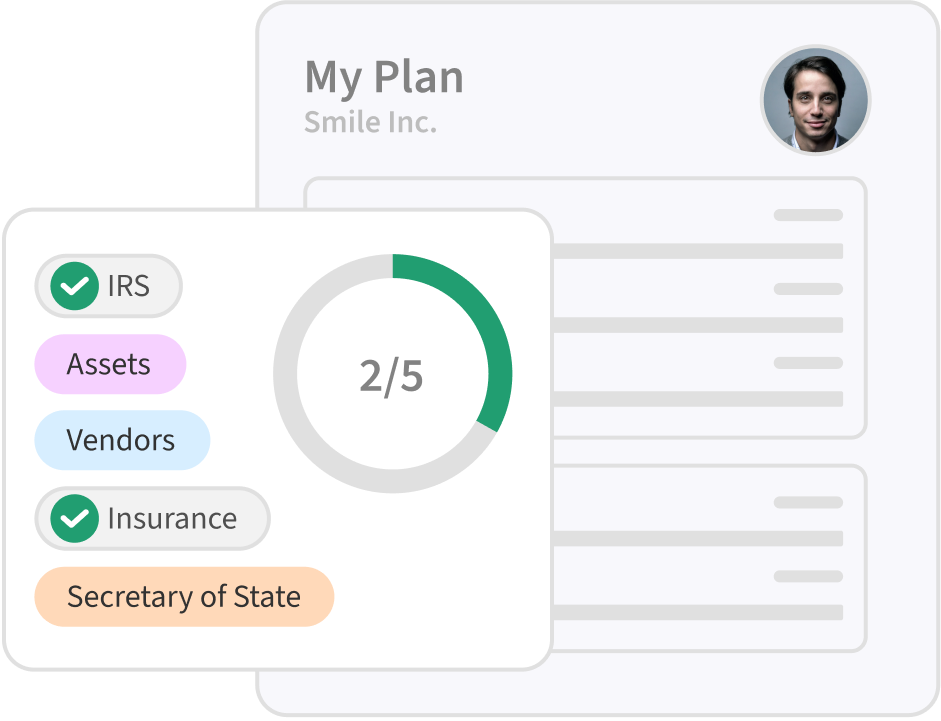Employee lawsuits have the potential to drag your startup into legal hot waters and significantly damage your reputation.
You might not consider it a major threat, but 18% of all startups fail because of legal challenges. This includes the company shutting down due to damages caused by litigious employees.
In this article, we’ll shed light on the importance of reputation management, understanding how lawsuits work, how to prevent them, and what to do when they eventually get dragged into one.
Understanding Employee Lawsuits
An employee lawsuit is a legal action taken by employees against their employers for alleged violations like wrongful termination, discrimination, harassment, or wage disputes. These lawsuits help resolve disputes through the court and have the potential to bring a startup business's reputation and operations to the ground.
Here’s how the most common types of employee lawsuits work:
Wrongful Termination
Wrongful termination is when an employer fires an employee in a way that goes against the terms of the contract, whether these terms are written or implied. An example of wrongful termination includes dismissing an employee before the specified employment duration without a justified cause.
Implied contracts (i.e., verbal agreements) usually hold the same importance as written agreements and are often derived from company policies, employee handbooks, or prior assurances (which is why you or the upper management shouldn’t make promises you can’t deliver or live up to as these can go against you in court).
Wrongful termination can also happen when the employer goes against one or more federal or state employment laws. Common examples include:
Firing an employee because they engaged in a legally protected activity like whistleblowing or filed a workplace violation complaint.
Terminating an employee for taking a legally protected leave (under the Family and Medical Leave Act) constitutes wrongful dismissal.
Discrimination
Workplace discrimination occurs when employees face unfair treatment because of their race, gender, age, disability, religion, or other protected characteristics. Employers can discriminate if they provide unequal pay, deny promotions, or dish out uneven disciplinary actions based on one or more characteristics.
For instance, if a qualified female employee is consistently denied promotion despite performing better than her male counterparts (who get promoted instead), it could be a case of gender discrimination.
The same applies if an employee with a disability is denied reasonable accommodations, which is required under the Americans with Disabilities Act (ADA).
Harassment
Workplace harassment refers to a range of behavior that encompasses sexual harassment, bullying, and conduct that is deemed intimidating, offensive, or abusive. For example, repeated unwanted advances, derogatory comments, or threats of physical assault all fall under harassment.
Recently, Activision Blizzard was forced to pay $18 million in damages when it was discovered that some people within leadership were involved in sexually harassing junior employees.
Wage Disputes
Under the Fair Labor Standards Act (FLSA), employers must adhere to federal standards for minimum wage and overtime pay. A startup can be liable for not upholding the FLSA, including unpaid overtime, misclassification of employees (treating full-time employees as independent contractors to avoid paying overtime), and not meeting the minimum wage requirements.
Now that you’ve understood why employees would take legal action let’s discuss how to prevent such cases from happening in the first place.
Preventing Employee Lawsuits
Develop Robust Human Resource Policies
Implement strong and transparent HR policies from the get-go to avoid employee lawsuits. Practically speaking, this means writing detailed job descriptions, creating and distributing easy-to-understand employee handbooks, and managing employee complaints effectively.
Ensure these policies are in line with the current state and federal labor laws. These laws are prone to change, so keep yourself updated. And remember, creating and implementing fair human resource policies is one of the strongest means of reducing employee complaints.
Invest in Employee Training
In the digital era, there’s no excuse not to benefit from free online educational resources. Use these to provide training sessions on workplace conduct, discrimination, harassment, and employment laws.
Maintain a zero-tolerance policy for any form of discrimination and harassment. Also, create open communication channels to foster a culture of respect and inclusivity, which helps attract and retain top talent.
Document Everything
This point cannot be stressed enough. Always document everything like HR-related processes, hiring history, performance reviews, disciplinary actions, and termination procedures. Doing so helps you defend against potential lawsuits, especially cases where an employee is wrong and wants the biggest payday possible.
Be Quick to Handle Complaints
Address employee complaints quickly. Any delays could be perceived as deflecting or ignoring the issue, fanning the flames even further. If you need time to investigate the situation, then at the very least, reassure the concerned party that you’re looking into the matter and will make an announcement or decide a verdict by X date.
Carry Out Routine Compliance Checks
Carry out routine audits to check whether your HR policies are being actively implemented, are up to date, and are compliant with federal and state labor laws. Such practices also keep people within the company on their toes and aware of the consequences of any wrongdoing. This point is crucial for startups, as employment laws are usually complex and vary according to state.
Now, it’s time to move onto the crux of this article: what to do if your employee sues you.
How to Handle an Employee Lawsuit
1. Take Immediate Steps
Remain calm and professional when faced with an employee lawsuit, as hasty or emotional reactions may worsen the situation. Also, refrain from actions that might be considered retaliatory against the employee filing the lawsuit because they could use that to strengthen their case.
2. Gather All The Evidence
The next step is to collect and secure all the relevant documentation, including emails, contracts, employee records, and other materials related to the case.
Equally important is controlling access to such information to prevent the possibility of someone altering or deleting the evidence. Proper documentation is necessary to build and defend your position in court.
3. Understand the Lawsuit
After gathering the evidence, you must understand the nature of the lawsuit and how it relates to existing employment laws.
Based on this understanding, you can then decide the best course forward whether it includes negotiating a settlement or preparing for a court battle.
4. Communicate with Stakeholders
Effective communication is key when dealing with employee lawsuits. Inform your team about the lawsuit in a way that respects confidentiality and adheres to legal advice. The goal is to reassure your employees without bringing down team morale.
If the lawsuit becomes public, start preparing a public statement. This statement should be factual, avoid language that admits guilt, and should not flame the issue further. All these points come under reputation mismanagement – something you should avoid at all costs.
Get your free founder's guide to shutting down

A comprehensive breakdown of how founders can quickly and easily execute a fully compliant shutdown
Conclusion
As we conclude this guide on managing employee lawsuits, let’s recap the key takeaways:
Prevention is better than cure – implement workplace policies that reduce the likelihood of litigious employees.
Understanding how lawsuits work helps you protect the future of your startup
When dragged into a legal battle, making intelligent decisions will safeguard your reputation and company finances.
Employee lawsuits can cost a lot of money, hurt a startup's reputation, and consume valuable time. If these problems get too big, they can make it very hard for a company to move forward. Sometimes, the best choice is to close the startup to avoid more trouble and loss.
In that regard, SimpleClosure can be of immense help. We believe in using tech-driven methods to help startups shut down. The result is a closure process that demands significantly less money, time, and mental energy (you let us handle the legality while you start planning your next move).
If any of that sounds interesting, let’s talk!


